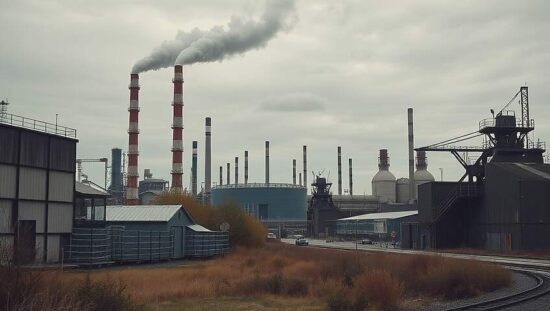Germany’s business climate showed a slight uptick in October, according to the Ifo Institute’s latest business climate index, climbing to 88.4 points from 87.7 in September. While initially perceived as a cautiously positive signal, deeper analysis reveals a complex and potentially fragile recovery, raising questions about the sustainability of this momentum and highlighting persistent structural challenges.
The unexpected, albeit modest, increase has been attributed primarily to improved forward-looking expectations, suggesting businesses anticipate a more favorable economic environment in the coming months. However, the concurrent assessment of a slightly deteriorating current business situation casts a shadow on immediate optimism. This divergence underscores a potential disconnect between projected growth and the realities businesses are currently experiencing.
Within the manufacturing sector, while the index registered a rise fueled by improving expectations, current business satisfaction has waned. Importantly, the decline in new orders has stalled, preventing a sharper downturn. Although capacity utilization has edged up to 78.2%, it remains significantly below the long-term average of 83.3%, indicating a considerable margin for potential expansion, but also highlighting underutilization of existing resources.
The service sector demonstrated a noticeable improvement, particularly among tourism and IT service providers. This highlights the potential for specific niches to drive economic activity, but also underlines the uneven nature of the recovery. The slight improvement in the perceived current situation, while welcome, needs to be interpreted within the context of a sector still grappling with post-pandemic adjustments and changing consumer behavior.
In the retail sector, renewed optimism is reflected in a warmer business climate, driven by less pessimistic expectations, particularly felt within the wholesale sub-sector. However, the assessment of the current situation has slightly worsened, suggesting headwinds continue to hinder immediate gains.
The construction sector, conversely, experienced a slight decline. While the current situation has been judged more favorably, expectations have grown more pessimistic and the persistent issue of a lack of orders continues to plague the industry. This paints a picture of a sector struggling with delayed projects and uncertain future contracts, potentially signaling broader issues regarding investment and long-term planning.
Overall, the Ifo Index’s figures release provides a nuanced perspective on the German economy. While the upward movement offers a glimmer of hope, the underlying complexities – divergent assessments of current versus future conditions and stark contrasts between performing and struggling sectors – call for careful monitoring and targeted policy interventions to address the structural vulnerabilities that continue to constrain a complete and robust economic revival. The reliance on optimistic projections necessitates a cautious approach, preventing premature celebration and emphasizing the need for sustained effort to solidify any genuine recovery.





